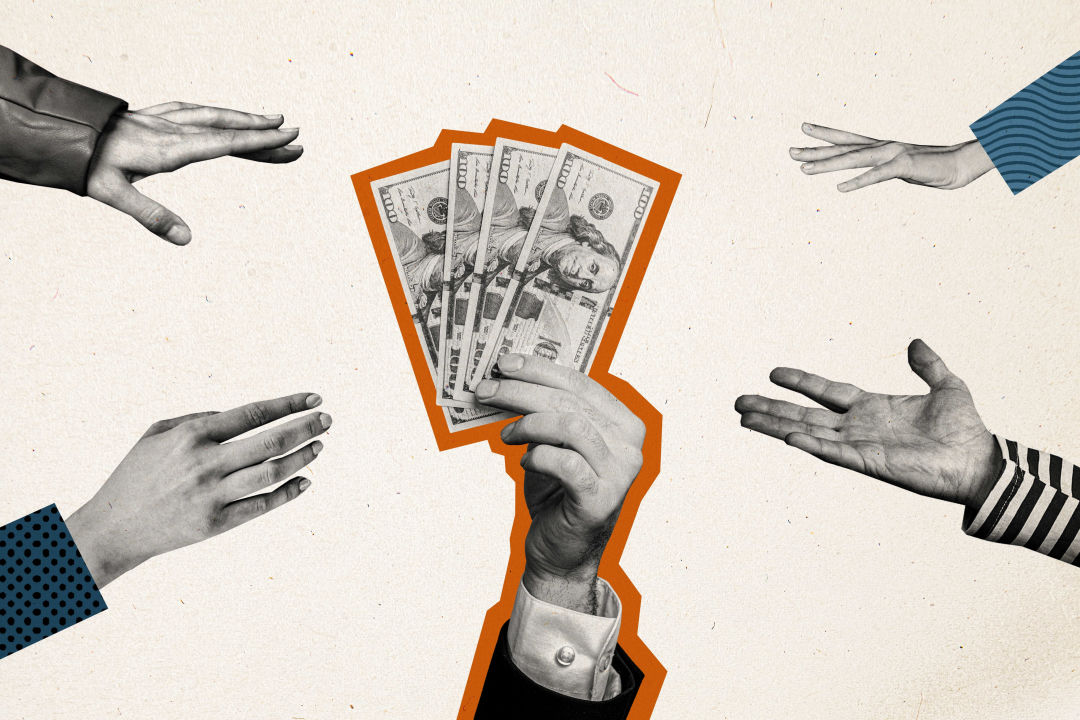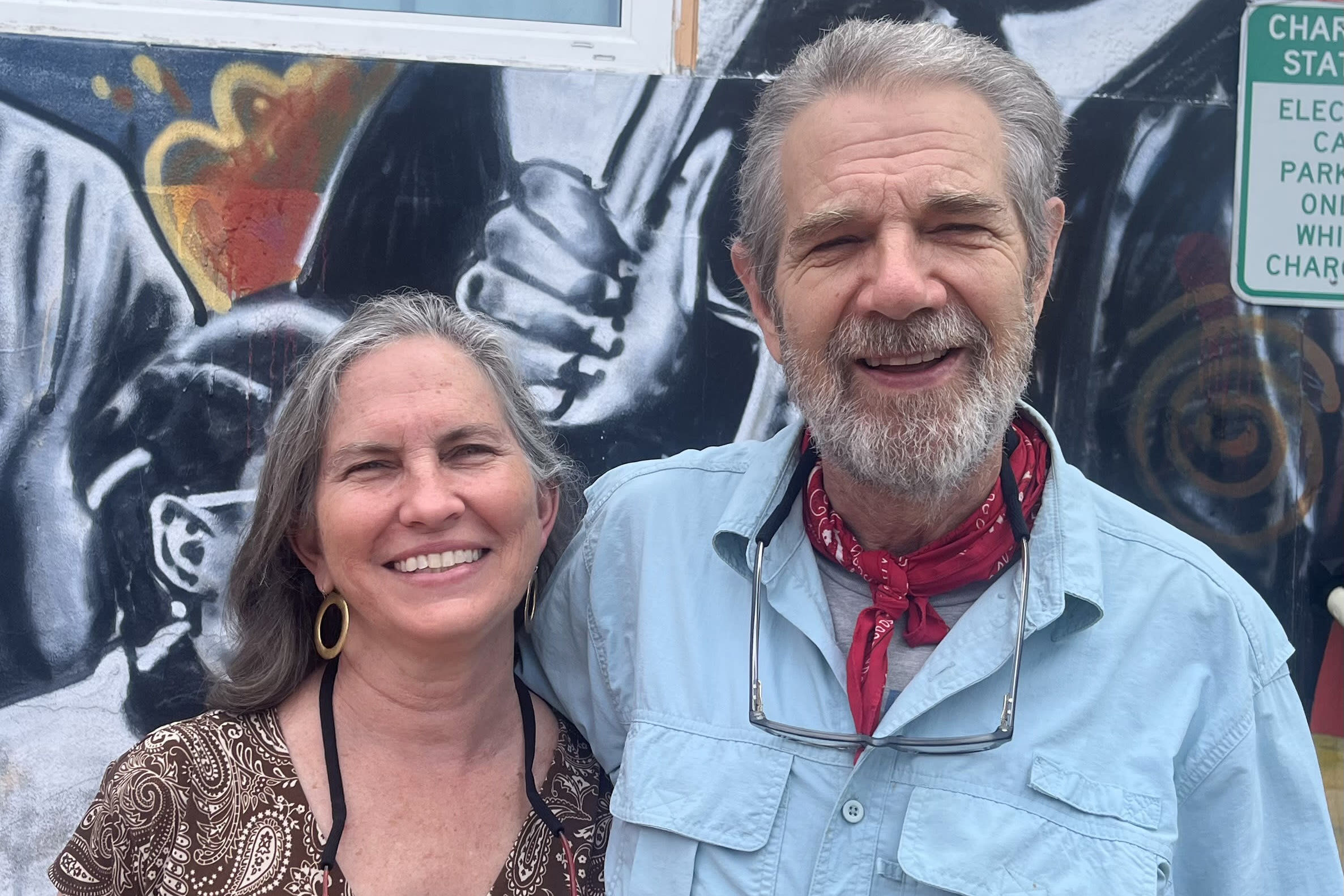State and Local Leaders Cut Funding for Arts Organizations This Year. Will Things Be Any Better Next Time Around?

First came the thunderclap announcement last June by Gov. Ron DeSantis that he was vetoing $32 million in arts and culture funding that was approved by the Florida Legislature—an unprecedented blow to a sector of the Florida economy that generates $2.9 billion in economic activity and creates thousands of jobs, according to the state’s own analysis. His rationale? DeSantis said he didn’t want money going to fringe festivals, such as those in Tampa and Orlando, that might present what he deemed “sexual” material. Since the governor is not allowed by law to pick and choose single items to delete from the budget, arts funding overall got the ax.
Then, a month later, the Sarasota County Commission nixed Tourist Development Council grants to three arts organizations: Embracing Our Differences, the Sarasota International Chalk Festival and WSLR+Fogartyville. Those grants are paid for by a portion of the tax money raised through tourist stays here, and are dedicated to promoting more cultural tourism. In this case, the reason given for the cuts was that it was too hard to accurately track visitor attendance at the Chalk Festival and Embracing Our Differences, since they offered free events and were open to the public at large.
But given the nature of a program like Embracing Our Differences, which aims to use “the power of arts and education to celebrate and promote our individuality and common humanity,” it seemed obvious to some that the commission simply saw the nonprofit and its bayfront arts exhibition as smacking too much of the principles of diversity, equity and inclusion—values that both state and local leaders have criticized in recent years.
While the three organizations deprived of funding were disappointed, to say the least, their leaders quickly pivoted to find ways to continue with their seasons. In the case of the Chalk Festival, founder and chief executive officer Denise Kowal and her organization were already facing difficulties with the loss of their Venice warehouse in 2022, due to Hurricane Ian. As a result, this year’s festival moved back to Sarasota, and the organization is raising money to replace the lost county funding. It will also now be charging admission fees, ranging from $5 to $75.
“We have all the data [about attendance] to support the grant,” says Kowal. “This year, just with artists alone, we are filling over 900 heads in beds, and that’s not counting the tourists who come. For them to question our attendance is a tad silly.”
She adds that going the ticketed route “is a great concern of mine. This is a community event. Artists come here to donate their time. Our organization is volunteer. I’m a volunteer. This year we created a ‘Grow Your Heart’ ticket for $150. That goes to support us, and we turned around and gave free tickets to nonprofits.”
Embracing Our Differences, meanwhile, found a savior of sorts in developer Hugh Culverhouse Jr. and his wife, who donated more than $100,000 so that the organization’s events can go on this season. Executive director Sarah Wertheimer says Culverhouse’s donation “was completely unexpected and a lifesaver for our organization. But what happens next is our biggest concern—not knowing if the commission will fund us in the future, as they have for the past 15-plus years, or if this is the new normal.” She adds, “We are truly not a political organization and never want to be, so it hurt so much that the commissioners tried to politicize the work that we do.”
WSLR+Fogartyville has also been forced to get creative. Earlier this year, general manager Jesse Coleman said the organization was “reeling” from the county commission’s decision, which he called a “brazen political attack.” He says the nonprofit radio station and live music venue hopes to make up for the losses by securing more donor and community support.
It is worth noting that the makeup of the commission did change with the November elections—but, of course, no one can say for certain what that change might mean when it comes to allocating tourist tax money in the future.
And what about at the state level? DeSantis’ veto affected 577 arts programs and 33 cultural facilities across the state, hurting smaller organizations the most. A survey of 150 Florida nonprofits found that one in three feared they would need to cancel programs for kids, nearly half might have to cancel events for the public and almost one-third could be forced to reduce staff.
The Florida Cultural Alliance, a statewide nonpartisan advocacy network, has been around since 1985. Since DeSantis’ veto, the group’s members have been writing letters to lawmakers, publishing open letters, hosting town halls, engaging with political candidates and seeking allies to join boards, while also running emergency fundraising campaigns. The alliance’s president and chief executive officer Jennifer Jones, whose unhappy job it was to deliver the bad news about the veto to many nonprofits, says the move came as a shock.
“The response the governor gave was that content was the big issue,” she says. “I’m taking him at his word. Initially, we had hoped there might be some conversation as to whether [arts groups] could get the money back, but that requires a special session, and the will to come back for that one line item did not exist.
“It’s real money,” she stresses. “And there will be certain programming that can’t happen.”
Jones says the response to the cuts at the community level gives her hope. “We’ve gotten tons of media coverage, and in our conversations among stakeholders, they leverage the attention to share the good that they do,” she says. “You have to get away from the hurt really quickly and move forward positively and strategically and hope it doesn’t happen again.”
Jones also feels that the veto may not mean the state is backing away from funding the arts entirely. “There’s been a lot of interest from legislators to discuss arts funding when they come back,” she says. “I had a first-time conversation recently with a deputy chief of staff, and I asked what can be done to prevent this from happening again.” What she heard is that lawmakers are not opposed to the arts, but still, she says, that’s “a sentiment from the executive office; it’s not dollars.”
The application deadline for next year’s state arts budget arrived before DeSantis’ veto. “That’s good,” Jones says. “Since it was before the bad news, people weren’t discouraged.” Thirty-seven organizations from Sarasota County submitted applications before the deadline. We’ll see what the 2025 legislative session yields—and wait for the governor’s response.


